Episodes
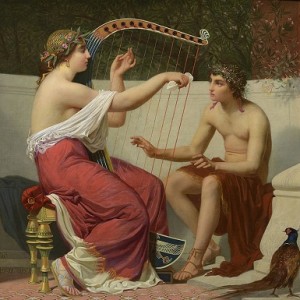
Tuesday May 05, 2020
Learning to Love Poetry with Dr. Glenn Arbery
Tuesday May 05, 2020
Tuesday May 05, 2020
In the May 1991 issue of The Atlantic, poet Dana Gioia wrote, “American poetry now belongs to a subculture. No longer part of the mainstream of artistic and intellectual life, it has become the specialized occupation of a relatively small and isolated group. Little of the frenetic activity it generates ever reaches outside that closed group. As a class poets are not without cultural status. Like priests in a town of agnostics, they still command a certain residual prestige. But as individual artists they are almost invisible.”
Not only do we Americans not know our contemporary poets, we don’t read the poets of the past either. Poems are, for many of us, opaque. We simply don’t understand nor do we take the time to learn to understand, to appreciate, to love poetry.
With that in mind, Wyoming Catholic College president, Dr. Glenn Arbery has been on a mission: the revival of poetry. And he's begun a daily vlog on which he reads and comments on one poem a day: www.wyomingcatholic.edu/blog. Dr. Arbery is our guest on this episode of The After Dinner Scholar.
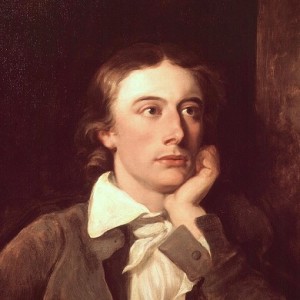
Tuesday Apr 21, 2020
Tuesday Apr 21, 2020
St. Agnes' Eve—Ah, bitter chill it was!The owl, for all his feathers, was a-cold;The hare limp'd trembling through the frozen grass,And silent was the flock in woolly fold:Numb were the Beadsman's fingers, while he toldHis rosary, and while his frosted breath,Like pious incense from a censer old,Seem'd taking flight for heaven, without a death,Past the sweet Virgin's picture, while his prayer he saith.
With those lines, the Romantic Era poet John Keats (1795-1821) began “The Eve of St. Agnes”(available here). A beadsman was someone whose duty it was to pray for his benefactor, the beads being the beads of the rosary.
While he prays in the chapel, in the adjacent castle, Keats tells us, Madeline dreams of her love for Porphyro, her family’s great enemy. Later that night Porphyro arrives at the castle and finds his way to Madeline’s bedroom. She wakes from a dream, the two declare their love for each other, and they run off together.
Dr. Glenn Arbery and Dr. Tiffany Schubert got together—online of course—to discuss the poem for the benefit of Wyoming Catholic College juniors listening at home.
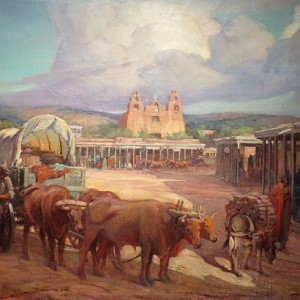
Tuesday Mar 17, 2020
Tuesday Mar 17, 2020
“One afternoon in the autumn of 1851, a solitary horseman, followed by a packmule, was pushing through an arid stretch of country somewhere in central New Mexico. He had lost his way, and was trying to get back to the trail, with only his compass and his sense of direction for guides....Under his buckskin riding-coat [the traveler] wore a black vest and the cravat and collar of a churchman. A young priest...and a priest in a thousand, one knew at a glance. His manners, even when he was alone in the desert, were distinguished. He had a kind of courtesy toward himself, toward his beasts, toward the juniper tree before which he knelt, and the God whom he was addressing.”
Those first lines from Willa Cather’s Death Comes to the Archbishop set the stage for the entire novel. A young priest riding through the middle of the varied landscapes of New Mexico.
Wyoming Catholic College senior Catherine Stypa chose Cather’s novel as the subject of her senior thesis this past the fall and her senior oration earlier this winter. Catherine Stypa is our guest on this edition of The After Dinner Scholar.
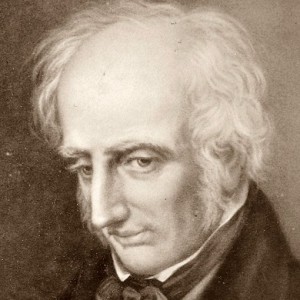
Tuesday Mar 10, 2020
Tuesday Mar 10, 2020
“Quit your books” to enjoy the sunshine is not exactly what we want from our students, but they do study this poem, “The Tables Turned” by William Wordsworth from which that line is taken.
Wordsworth (1770-1850) was one of the first of the English romantic poets and one of the major figures in the Romantic Movement. Romanticism emphasized individualism, emotions, and the glories of nature in contrast to an increasingly technological world.
Dr. Tiffany Schubert has been teaching Wordsworth this semester and is our guest on this week's After Dinner Scholar.

Tuesday Mar 03, 2020
The Oresteia: Vengence, Fury, and Justice with Dr. Pavlos Papadopoulos
Tuesday Mar 03, 2020
Tuesday Mar 03, 2020
Aeschylus play “Agamemnon” along with “The Libation Bearers” and “The Eumenides” form the trilogy called “The Oresteia.”
As the first play opens, Agamemnon has been gone ten years fighting the Trojan War. During that time his wife, Clytaemnestra, has ruled as a tyrant. She has sent off their son, Orestes, and has taken up with Agamemnon’s cousin Aegisthus. She’s also established a string of signal fires from Troy to Argos to inform her as quickly as possible of the fall of Troy which will lead to her husband’s return.
One night, the watchman sees the signal that Troy has fallen and the scene is set for Agamemnon’s homecoming that includes revenge, bloodshed, and finally the kind of justice appropriate to a free people.
Dr. Pavlos Papadopoulos has been teaching “The Oresteia” to our Wyoming Catholic College freshmen and is our guest on The After Dinner Scholar.

Tuesday Feb 04, 2020
Much Ado About "Much Ado About Nothing" with Dr. Tiffany Schubert
Tuesday Feb 04, 2020
Tuesday Feb 04, 2020
William Shakespeare’s “Much Ado About Nothing” has it all: heroes and villains, loyalty and betrayal, hatred and love, vengence and silliness, a devilish plot and a happy ending. At one point it veers dangerously close to utter tragedy only to come right again with true love conquering even the coldest hearts.
After trading Beatrice's and Benedick's insults, guest Dr. Tiffany Schubert shares insights into this delightful comedy.
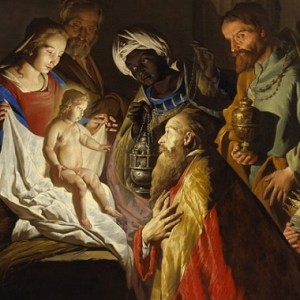
Tuesday Dec 31, 2019
The Magi in the Poetry of Yeats and Eliot with Dr. Glenn Arbery
Tuesday Dec 31, 2019
Tuesday Dec 31, 2019
‘A cold coming we had of it,
Just the worst time of the year
For a journey, and such a long journey:
The ways deep and the weather sharp,
The very dead of winter.’
Those lines are the beginning of T. S. Eliot’s poem “Journey of the Magi,” an imagined first-person reflection by one of the Magi on the long trip to Bethlehem.
St. Matthew’s Gospel makes it clear that these were the first Gentiles, the first non-Jews to worship Christ. And they, their journey, and their gifts—gold for a king, frankincense for a God, and myrrh with its aroma of death—have attracted a good deal of interest and imagination over the centuries.
As we prepare for the Feast of Epiphany, Wyoming Catholic College president Dr. Glenn Arbery discusses Eliot’s poem (written in 1927) as well as one written by William Butler Yeats some years earlier (in 1916).
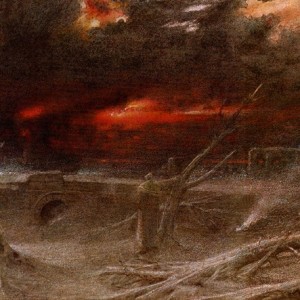
Tuesday Dec 24, 2019
The Abolition of Man, Part Three: "The Abolition of Man" with Dr. Jason Baxter
Tuesday Dec 24, 2019
Tuesday Dec 24, 2019
In his book, The Abolition of Man, C. S. Lewis imagined a reader saying, “You say we shall have no values at all if we step outside the Tao. Very well: we shall probably find that we can get on quite comfortably without them. Let us regard all ideas of what we ought to do simply as an interesting psychological survival: let us step right out of all that and start doing what we like. Let us decide for ourselves what man is to be and make him into that: not on any ground of imagined value, but because we want him to be such. Having mastered our environment, let us now master ourselves and choose our own destiny.”
That quote is at the end of the second chapter of The Abolition of Man our Wyoming Catholic College book of the year. In that chapter Lewis argued that the Tao or Natural Law is essential for any morality, any sense of “ought to.” But what if we throw away morality? What if we allow no ought, no permanent values, nothing but what we as humans choose for ourselves in any given age?
That question leads to the third and final part of the book and the final abolition of man. In this, our third podcast about The Abolition of Man, our guest is Wyoming Catholic College’s Academic Dean, Dr. Jason Baxter.
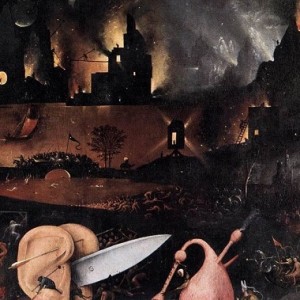
Tuesday Dec 17, 2019
The Abolition of Man, Part Two: "The Tao" with Joseph Pearce
Tuesday Dec 17, 2019
Tuesday Dec 17, 2019
In his book The Abolition of Man Lewis argued that the practical result of making all moral judgments subjective—“I feel” rather than “I think”—“must be the destruction of the society which accepts it.”
Lewis saw in 1943—and we, seventy-five years later, certainly see—the ravages of such subjectivity. And that’s one of the reasons we’ve chosen The Abolition of Man as our Wyoming Catholic College book of the year.
But there’s a catch, wrote Lewis. Radical subjectivity while easy to preach is for the most part impossible. When people claim to reject the objective, what Lewis called the Tao—Natural Law or traditional morality—they are nonetheless forced to operate by smuggling shreds of the Tao back into their thinking.
To help us to understand the second lecture in The Abolition of Man, a lecture Lewis entitled “The Way,” we’re joined by author and scholar Joseph Pearce. Mr. Pearce is Director of Book Publishing at the Augustine Institute, editor of the St. Austin Review, editor of Faith & Culture, and series editor of the Ignatius Critical Editions. In addition he is a member of Wyoming Catholic College’s Catholic Scholars Advisory Board.
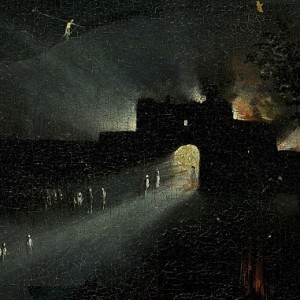
Tuesday Dec 10, 2019
The Abolition of Man, Part One: "Men Without Chests" with Dr. Kent Lasnoski
Tuesday Dec 10, 2019
Tuesday Dec 10, 2019
At some point in the early 1940s, scholar and author C. S. Lewis received a review copy of a textbook for “boys and girls in the upper forms of school,” that is, high schoolers. And while he was grateful to the authors for sending the book, “At the same time,” he wrote, “I shall have nothing good to say of them.”
Lewis tells the story of the textbook in the first of three lectures he delivered in 1943 and then published as the book The Abolition of Man. Now seventy-fifth anniversary, Wyoming Catholic College has chosen The Abolition of Man as our book of the year. This is the first in a series of three podcasts about the book.
This week we will consider the first lecture that Lewis gave the provocative title, “Men Without Chests.” In it he focused on the radical subjectivity regarding morality that he saw all around him and the enormous damage it does and would continue to do to the human person.
To tell us about “Men Without Chests,” our guest this week is Wyoming Catholic College moral theologian, Dr. Kent Lasnoski.

